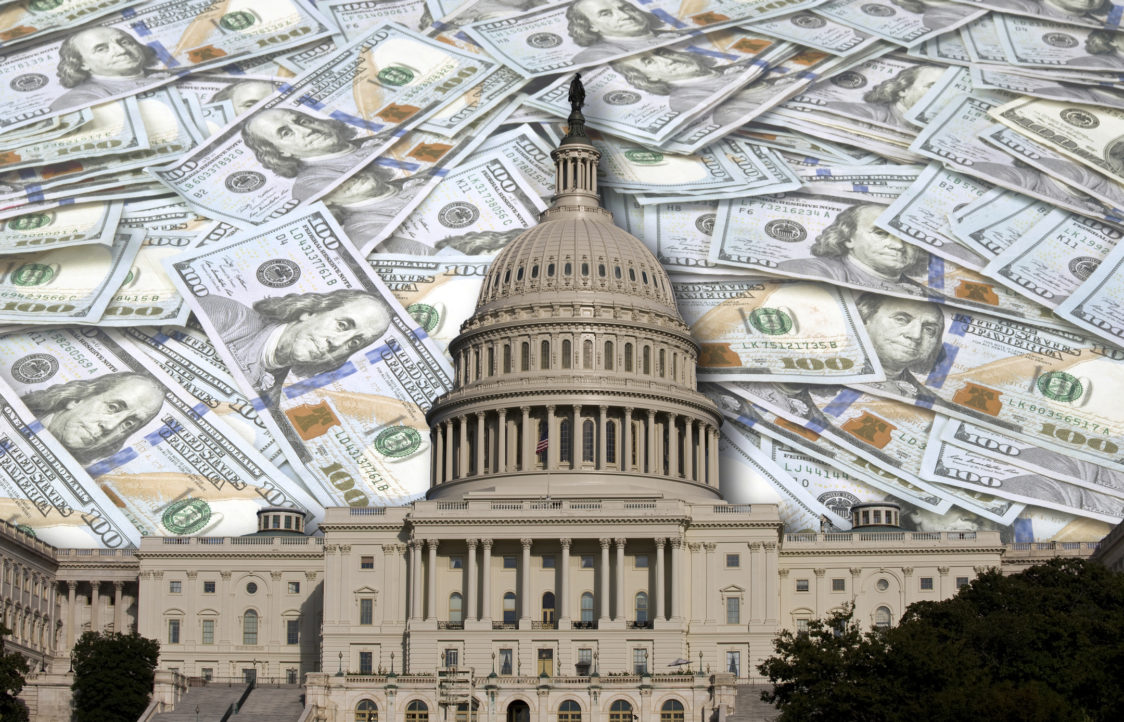Catchphrases are catchy. That’s why they’re called catchphrases. Morning in America. Bridge to the 21st Century. Compassionate Conservatism. Yes We Can. Make America Great Again. But slogans can be just as shallow as they are catchy – and sometimes even misleading.
At a rally back in October, Donald Trump explained the genesis of his campaign’s closing catchphrase: Drain the Swamp: “I said that about a week ago, and I didn’t like it that much, didn’t sound that great. And the whole world picked it up. Funny how things like that happen…I didn’t like it. Now I love it, right?”
Terrific, terrific. But what does this really mean? Like a lot of the word-mash that we hear from the Performer-elect, we don’t exactly know. At different points, he has associated “drain the swamp” with corruption, campaign finance, “pay-to-play,” and lobbyists.
If Trump was referring to those lobbyists and rich folks who’ve supported his campaign, then his incoming executive branch will not be draining but rather sustaining the swamp. His choice for Treasury Secretary, Steve Mnuchin, was the campaign finance chair and gave more than $200,000 to the RNC. His selection for National Security Advisor, Retired Gen. Michael Flynn, ran a company that lobbied the U.S. government on behalf of foreign clients. Trump’s pick for Secy. of Education, Betsy DeVos, and her family have donated more than $200 million to Republican political campaigns and conservative causes. The list gets longer.
But using Trump’s glib and broad label of “swamp” to describe the individuals (alligators) he’s selecting to serve in his administration is the easy criticism. It may be true, but it doesn’t get us very far if the goal is to actually purify or at the very least improve the effectiveness of our government. If there is such a thing as a swamp in D.C., the creatures populating it are more or less fungible in terms of corruption. The real problem goes beyond the parties or the people we elect. It’s the rules in our system that not only allow, but encourage a flood of money to course through the capital. It’s the billions of campaign dollars that muddy up the waters in Washington.
To his credit, candidate Trump announced a “five-point plan for ethics reform” on October 16th. The proposed measures are largely focused on restricting foreign lobbying or lobbying done by former members of the U.S. government. These steps are fine, if actually taken. But his proposal completely ignores the way campaigns are currently funded in the U.S. Congress. Presidents come and go. The dysfunction on Capitol Hill just might last forever.
The 2016 cycle set yet another record for total spending on congressional elections: $4,266,514,050. Plenty of those dollars are still in “dark money” contributions where the donors remain hidden. To raise these kinds of amounts, members of Congress can spend up to 50 hours a week dialing for dollars.
U.S. Rep. David Jolly (R-FL) paints the picture: “It is a cult-like boiler room on Capitol Hill where sitting members of Congress, frankly, I believe, are compromising the dignity of the office they hold by sitting in these sweatshop phone booths calling people asking them for money.”
And all of that begging is not for nothing. The flood of money buys access and influence. Former U.S. Senator and Representative Tim Wirth (D-CO), who left office 20 years ago, has described the current environment as “getting paid for political outcomes” and “legalized corruption.” And Wirth sad that was child’s play compared to today.
The good news? At this very moment, there are legislative proposals waiting for passage in Congress that would change the way these races get funded. And with the 115th U.S. Congress being sworn in on January 3rd, these reform measures deserve renewed and serious attention.
U.S. Rep. John Sarbanes’s (D-MD) Government By The People Act would begin to level the playing field by leveraging small donations up to $150 with public matching funds at a ratio of 6 to 1 – and 9 to 1 for candidates who choose not to accept contributions over $150. Candidates who don’t have easy pots of big money to target would actually have a chance when challenging well-heeled, safe incumbents.
The DISCLOSE Act nearly became law in 2010 before it was killed by the Senate filibuster. The reform bill would force disclosure of the millions of dollars in dark money, and would replace the gridlocked FEC with a five-member agency possessing increased investigative and enforcement powers.
And Congressman Jolly, a current member of the GOP House Majority, has taken it a step further by introducing the Stop Act. The bill would prohibit “direct solicitation of campaign contributions or funds for Federal election activity by Federal officeholders.”
The current campaign finance system is a bad joke. The painful punchline is that American voters don’t matter the way that they should in our vaunted democracy. For folks who backed Trump based on his promises to “drain the swamp” and get rid of special interest influence in politics, you’ll know he’s actually serious when he stands up to champion even one of these proposed reforms in Congress. The President-elect should put his money where his mouth is – and begin to dilute the power of the money flood.


